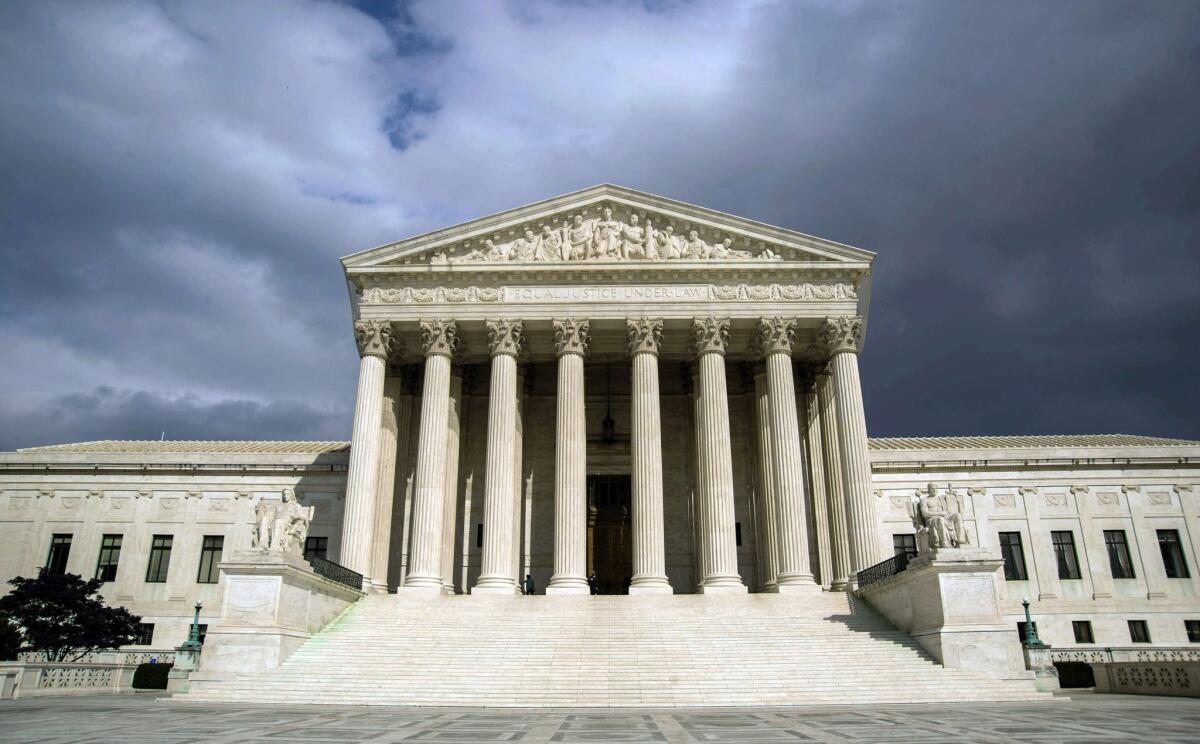Man who ranted on Facebook about estranged wife wins Supreme Court ruling

Supreme Court justices struggled with the difficult question of whether threats made on Facebook can be prosecuted or are protected free speech.
The Supreme Court made it harder Monday to punish people who post threatening comments online, ruling that prosecutors must show that the sender had the required criminal intent to threaten someone.
Before, most judges had said people could be prosecuted for sending threats online if a “reasonable person” reading the words would think they conveyed a true threat.
But in a case involving hostile comments made on Facebook, the high court rejected that view Monday and decided that people cannot be convicted of the crime of sending threats unless they had an “awareness of some wrongdoing,” which is needed to show criminal intent.
The court’s opinion rested on a subtle point of criminal law and said nothing about the 1st Amendment or free speech. But it is likely to shield people who rant online or muse darkly about carrying out violent acts.
It is a setback for victims of domestic violence, who say prosecutors need more leeway to go after ex-spouses and others who post specific threats on the Internet.
By an 8-1 vote, the justices reversed the conviction of Anthony Elonis, a Pennsylvania man who posted on Facebook what he called “therapeutic” rants about his estranged wife.
“Did you know that it’s illegal for me to say I want to kill my wife?” he asked in one posting. In another, he wrote he would “not rest until your body is a mess, sealed in blood and dying from all the little cuts.”
Her friends alerted authorities. Soon after a female FBI agent came to his house to speak to him, Elonis posted on Facebook that he was about to “pull my knife [and] slit her throat.”
Federal law makes it a crime to transmit “any threat” to “injure” another person. Elonis was prosecuted, convicted by a jury and sent to prison for three years and eight months.
When the Supreme Court took up his appeal in Elonis vs. United States, 1st Amendment advocates hoped for a broad ruling that would strengthen the principle of free speech on the Internet.
Chief Justice John G. Roberts Jr., however, said the court decided to focus narrowly on a historic principle of criminal law. Before someone can be convicted of a crime, they should be at least aware that what they were doing was wrong.
In this instance, Elonis seemed to believe that his writings were like “rap lyrics” and were protected as free speech.
Roberts said it was an error for the judge to permit the jury to convict Elonis based only on how his posts would be viewed by a reasonable person, a standard used in civil, not criminal, cases. The defendant has to be aware that his rants were true threats, he said.
A defendant can be convicted if he “transmits a communication for the purpose of issuing a threat or with the knowledge that the communication will be viewed as a threat,” the chief justice said.
While agreeing with the outcome, Justice Samuel A. Alito Jr. faulted Roberts and his colleagues for handing down a ruling that decides very little.
“This case is certain to cause confusion and serious problems,” Alito wrote in a concurring opinion. The ruling does not clarify what must be proven to win a conviction, he wrote, but instead, “attorneys and judges are left to guess.”
In dissent, Justice Clarence Thomas said that Elonis’ “general intent” was clear and that his conviction should have been upheld. He also faulted the court for issuing a hazy opinion.
“Our job is to decide questions, not create them,” he said.
The ACLU’s Legal Director Steven Shapiro praised the ruling.
It “properly recognizes that the law for centuries required the government to prove criminal intent before putting someone in jail,” he said. “The Internet does not change this long-standing rule.”
Twitter: @DavidGSavage
More to Read
Start your day right
Sign up for Essential California for news, features and recommendations from the L.A. Times and beyond in your inbox six days a week.
You may occasionally receive promotional content from the Los Angeles Times.







